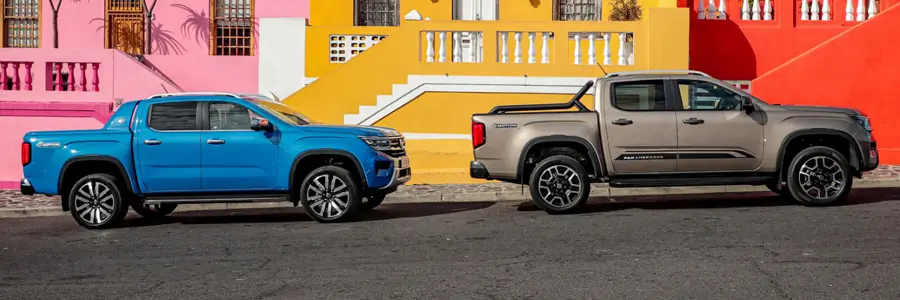Double cabs remain a low tax haven after Government abandons rule change

The Government has abandoned plans to introduce massive tax increases on drivers receiving new double cab pick-ups after an industry outcry over the impact on businesses.
HM Revenue and Customs issued new guidance in February saying that double cab pick-ups with a payload of one tonne or more would be treated as company cars if they were available for private use and purchased or leased after July, ending their historic treatment as vans.
However, amid high profile industry complaints and extensive negative national news coverage, the Treasury announced a week later that the whole proposal was being scrapped.
The current rules remain in place, so double cab pick-ups with a payload of one tonne or more are still classed as vans. This provides a low-tax benefit for drivers who have private use of vans, as employees only pay benefit-in-kind tax on a fixed amount (currently £3,960). If they receive free fuel for private mileage, they also pay tax on a fixed amount (£757 for the 2023/4 tax year). As a result, a 20% taxpayer would incur a total annual tax bill of less than £1,000 to have private use of a double cab typically costing £40,000 or more.
Had the tax changes gone through, “most if not all” double cabs registered by businesses after July that had an element of private use would have been taxed as company cars, and as a result the same driver’s tax bill would have leapt 400%, while the tax for receiving free fuel would have rocketed 1,300%.
This is because company car drivers pay tax on a percentage of the value of their vehicle based on its CO2 emissions. Well-appointed double cabs typically sit in the highest tax band of 37%, so the same 20% tax-paying driver given a pick-up costing £40,000 after the rule change would have incurred a £2,960 annual tax bill for private use. The flat rate taxable value for free fuel for company car drivers for 2023/4 is £27,800, and a driver pays tax on a percentage of this defined by their company car’s tax band (37%). Therefore, the driver would incur a further £2,057 tax bill for ‘free’ fuel based on the current tax year’s rules.
“Negative impact on businesses”
A joint statement from the Treasury and HMRC recognised the potential negative impact this could have had on businesses. It said:
“The government has listened carefully to views from farmers and the motoring industry on the potential impacts of the change in tax treatment. HMRC has announced that its existing guidance will be withdrawn, meaning that double cab pick-ups will continue to be treated as goods vehicles rather than cars, and businesses and individuals can continue to benefit from its historic tax treatment.”
The move was welcomed by the Society of Motor Manufacturers and Traders, which said it would be a “relief to many sole traders and businesses that rely on double cab pick-ups for their livelihoods, especially in the construction and farming sectors”.
The confusion followed a Court of Appeal ruling against Coca-Cola, which had claimed that four-seat crew-cab versions of the Vauxhall Vivaro and Volkswagen Transporter vans used in its fleet ought to be treated as commercial vehicles for benefit-in-kind tax purposes. After Coca-Cola lost the case, HMRC used it as the basis for the proposed double cab changes.
The Government is now preparing legislation to ensure there is clarity for companies on the classification of double cabs.
Nigel Huddleston, financial secretary to the Treasury, said:
“We will change the law at the next available Finance Bill in order to avoid tax outcomes that could inadvertently harm farmers, van drivers and the UK’s economy.”
Despite the ruling, companies can still review their options when it comes to reducing emissions related to double cabs.
For example, there is currently one electric pick-up truck available, the Maxus T90EV, while several brands are developing a plug-in hybrid version of their pick-up range. Toyota also has a hydrogen version developed in the UK with Government funding, but currently this is a prototype.
Rob Marshall, Operations Director, Gateway2Lease, said:
“The Government has listened to industry concerns and reassured companies they can continue to opt for low-tax double cabs for their transport needs. We can assist business owners in reviewing their options when it comes to sourcing the best pick-up for their specific requirements, whether that is a single cab or double cab, and keep them up to date with the latest manufacturer developments to help them reduce emissions and running costs.”
View our latest blog posts

Categories
Pages
We are a family run business based in rural Worcestershire. Our team of 38 staff are on hand to provide an exceptional service to personal and business customers.
Read More
